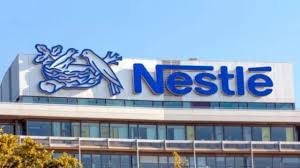Nigeria’s federal government and Nestlé Nigeria have launched a demonstration dairy farm at the Paikon Kore Grazing Reserve in Gwagwalada, Abuja, marking a significant step toward transforming the country’s dairy industry.
Inaugurated by the Minister of Livestock Development, Idi Mukhtar Maiha, the project underscores a major public-private partnership aimed at increasing local milk production, introducing advanced farming technologies, and improving pastoral livelihoods.
Maiha described the initiative as a game-changer for Nigeria’s livestock sector, emphasizing its role in addressing key challenges such as infrastructure, access to finance, and veterinary services. “This collaboration provides a sustainable solution to Nigeria’s dairy challenges and aligns with the government’s commitment to economic diversification, job creation, and food security,” he said.
The farm was developed with support from 2Scale, CBI Innovations Limited, and the Federal Capital Territory Administration (FCTA) as part of Nestlé’s Livestock Development Project. Nestlé has invested over ₦1.8 billion in the Paikon Kore Grazing Reserve since 2019, leading to a sharp increase in daily milk collection from 200 liters in June 2021 to 6,000 liters today.
Nestlé Nigeria’s Managing Director, Wassim Elhusseini, reaffirmed the company’s dedication to strengthening the dairy sector. “This farm is a demonstration of our commitment to empowering local farmers, promoting sustainable practices, and contributing to food security,” he said.
CBI Innovations Limited’s Managing Director, Olusoji Apampa, highlighted the farm’s cutting-edge technology, including semi-automated milking systems, sustainable waste management, and improved animal feed solutions. A facility tour revealed modern infrastructure designed to enhance productivity, with artificial insemination efforts increasing the animal population from 20 to 71 in just over a year and a half.
Beyond technological advancements, the initiative is having a profound impact on local pastoralists, who are receiving training in modern dairy practices. Farmers have reported significant increases in milk production and income, thanks to access to improved resources and storage facilities.
With a target of aggregating 30,000 liters of milk per day by November 2027, the project underscores the transformative potential of public-private partnerships in reshaping Nigeria’s agricultural landscape. It stands as a model for sustainable dairy development, offering hope for greater food security and job creation.










